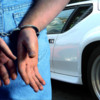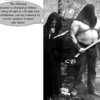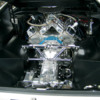quote:
Originally posted by PanteraTurbo:
Deeb,
Was it radar or laser? What were the road conditions (drizzle, clear)? Same questions for you Peter.
Blaine
Blaine:
It was clear and sunny, so no mitigating factor there. Also, there was no other traffic. It was just me and the cop going the opposite direction on a straight section of a two lane country road.
quote:
ALL manufacturers of radar equipment specify that the police agency must run so many seconds of "history" on your speed in order to verify the readings were not erroneous. If you reduced your speed quick enough and the officer was unable to collect data for the time specified by the radar manufacturer, you have the ticket beat. If memory serves me, that time is normally around 20 to 30 seconds, but it varies a bit from manufacturer to manufacturer.
"I was told if you slam on the brakes and slow to well below the speed limit, it will cause the radar to throw a 'false' as it is trying to determine a speed over a fixed time."
Guys:
I have a Valentine One. I hit the brakes as hard as I could the instant it went off, and was concentrating on staying straight under such extreme braking so I actually slowed to below the limit before realizing it and then coming back up. My guess is that he had me for less than two or three seconds before I was at or below the limit. I will ask the detachment for the make of the radar gun and see if there is a requirement for a minimum time or distance that I should have been observed for. Unless the cop lies, then I should be good to go. I will also check to see if there is a requirement here in BC for them to check the road for interference.
Curiously, tickets here in BC do not state what speed they clocked you at, and the cop did not tell me. I wonder if that makes any difference? This is the first time I have ever received a ticket and not been informed of the speed I was clocked at. I wonder if he got a "false" and did not want to admit it.
He did ask me if I had a radar detector, which I admitted because they are legal here, and that will come out in court. I worry that I will lose any sympathy the judge may have because of it. However, it could also work for me, because he then went on to say, "I thought so, because you slowed down quite a distance away."
I have one remaining question. Is there a maximum range for the typical radar gun? As I wrote previously, I was at least one kilometer away from the cop when he zapped me. He was barely a spec on the horizon. I really wonder if he could have sorted me out from the clutter at that range. Does anybody know how these guns work and if they can reliably get a reading at that range? Can I somehow prove how far he was away or do I have to rely on his honesty?




